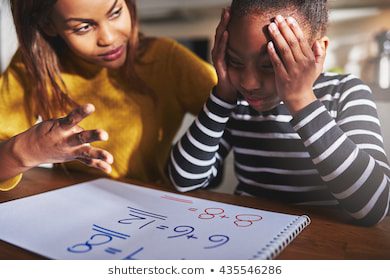Forgotten Dairies
The Struggle of Learning in Nigerian Schools – Our Children Deserve Better -By Kator Ifyalem
The current state of educational system in Nigeria is a national tragedy, with millions of children confined to cramped, inadequate, and uninspiring learning spaces. US and China just announced the integration of AI in their curriculum at all levels, including elementary schools. This indicates foresight with strategic planning. Nigeria is backward and without decisive action, we will continue to tilt. This generation even risks being the most educationally disadvantaged in the history of the country, undermining future development and prosperity.

The proliferation of substandard schools in Nigeria is a stark symptom of a systemic failure that has deeply compromised the nation’s educational landscape. The education system has deteriorated drastically over the past few decades, leaving millions of children studying in inadequate, often deplorable conditions.
Historical Context and System Failures
In the 1980s, the Nigerian education system began to unravel during the “expo era,” marked by widespread corruption in examination processes, including the illicit sale of exam papers. This corruption eroded public trust and set a precedent for academic dishonesty that persists today. As public schools’ reputations plummeted, wealthier Nigerians increasingly turned to private schools or foreign education, creating a clear divide in educational access and quality.
This shift drained public schools of resources and attention, leading to chronic underfunding. Nigeria’s education budget has consistently fallen below the UNESCO recommended 15-20%, with allocations as low as 4.22% in 2024 and only a slight increase to 5.48% in 2025. This underinvestment has resulted in decayed infrastructure, unpaid teacher salaries, and a lack of basic learning materials.
Current Pitiable Situation
Many public schools, especially in rural areas, lack fundamental facilities. For example, it is reported that Zensi Primary School in Taraba State operates without classrooms, desks, or chairs, forcing children to sit on the ground while teachers work without pay for months or even years. Such conditions are common, with overcrowded classrooms, absence of clean water, and no functioning toilets further degrading the learning environment and impacting health negatively.
Teacher quality is another critical issue. Many educators are underqualified, poorly trained, and demotivated due to irregular or absent salaries. This leads to substandard instruction and poor student outcomes. Additionally, exam malpractice remains rampant, undermining the credibility of academic achievements and further entrenching mediocrity.
Consequences and Social Impact
The systemic neglect has dire consequences. Over 18 million Nigerian children are out of school, many forced into child labour or street begging. Those who do attend public schools often receive an education that conditions them to mediocrity, limiting their future opportunities and perpetuating cycles of poverty. The widening gap between private and public education also fuels social inequality and class divisions.
Why It Was Not Always Like This
In earlier decades, Nigeria’s education system was more robust and respected, producing graduates who contributed meaningfully to national development. The decline is largely due to corruption, political apathy, and mismanagement of resources. Public funds meant for education have often been misappropriated, and successive governments have failed to prioritize education adequately.
Addressing this crisis requires urgent systemic reforms: Educational reform requires increased and transparent funding to meet or exceed UNESCO recommendations, coupled with improved teacher training and timely remuneration to attract and retain qualified educators. Infrastructure development is essential to provide conducive learning environments, while strict enforcement against exam malpractice must be implemented to restore academic integrity. Additionally, a focus on technical and vocational education is necessary to equip youth with practical skills that meet market demands and foster economic growth.
While NGOs and changemakers have stepped in to fill some gaps, sustainable change is hinged on political will and accountability from government authorities. What we need is beyond donation of school bags, uniforms or note books, we need robust policy change.
The current state of educational system in Nigeria is a national tragedy, with millions of children confined to cramped, inadequate, and uninspiring learning spaces. US and China just announced the integration of AI in their curriculum at all levels, including elementary schools. This indicates foresight with strategic planning. Nigeria is backward and without decisive action, we will continue to tilt. This generation even risks being the most educationally disadvantaged in the history of the country, undermining future development and prosperity.









